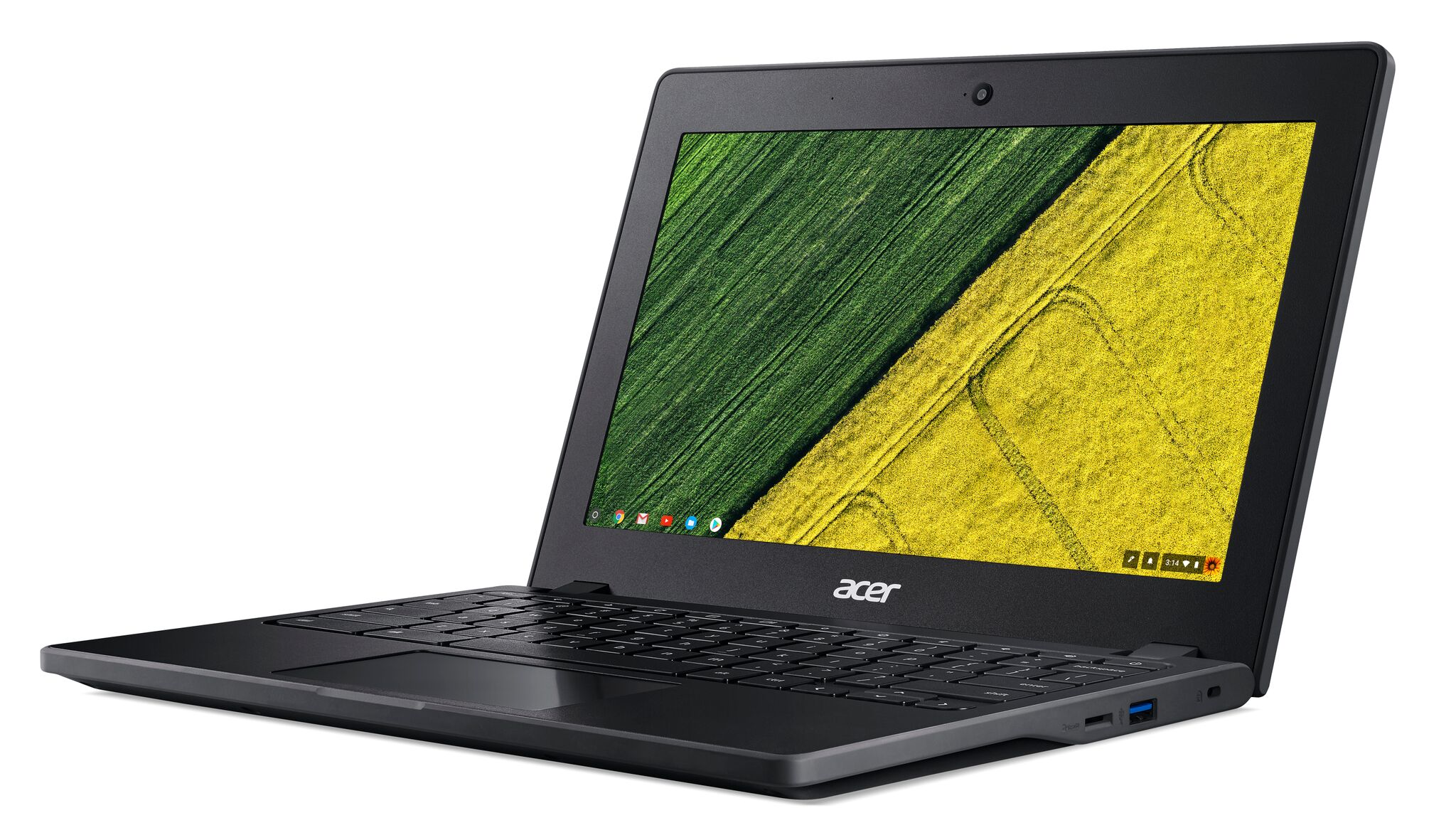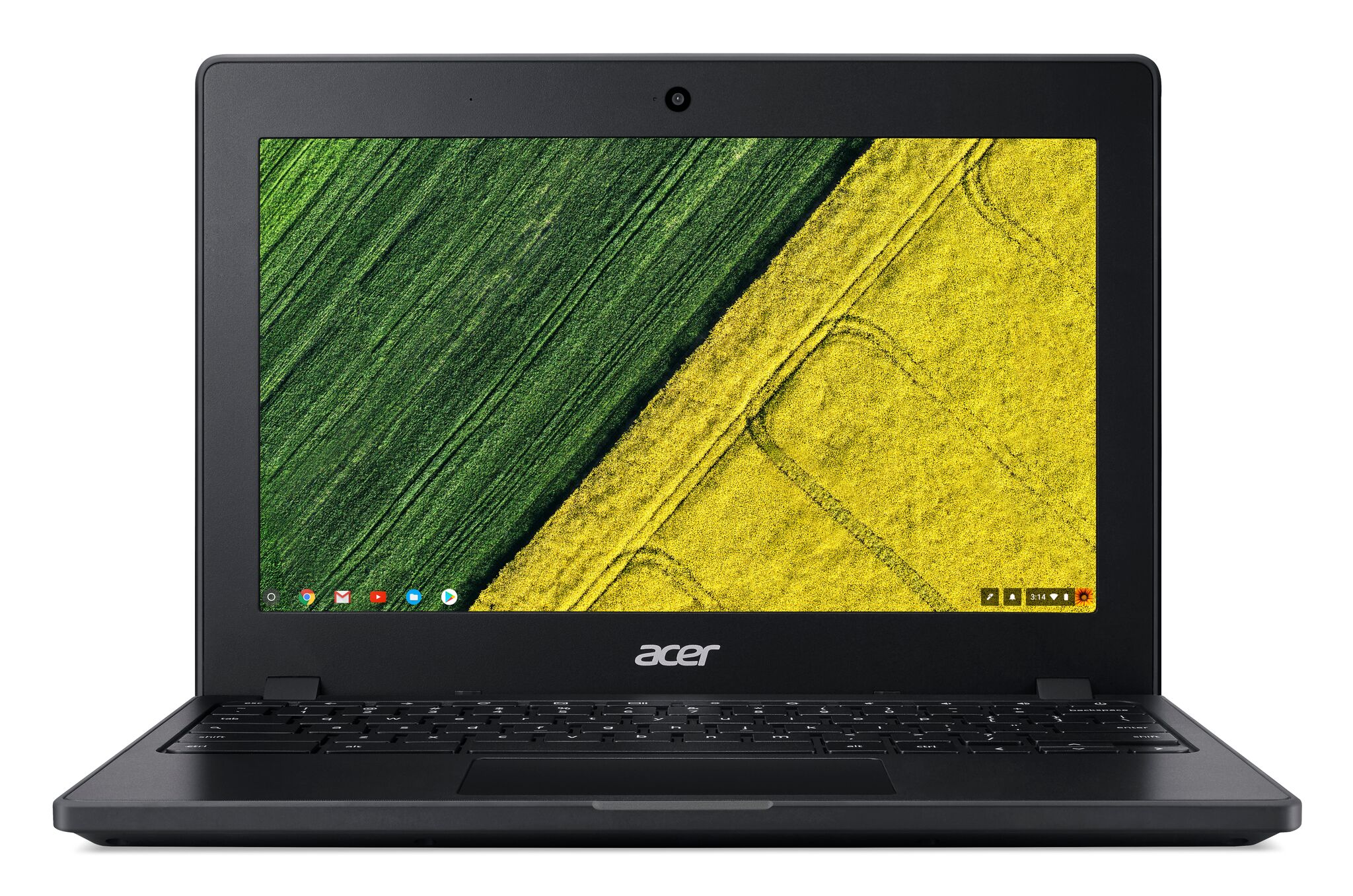Acer Reveals Chromebook 11 With 6th Gen Intel Processors
We may already be seeing the emergence of Intel’s 8th generation Coffee Lake processors, but that didn't stop Acer from tapping 6th generation Skylake processors for its new Chromebook.
Acer is looking to get a piece of that back-to-school pie with its new Chromebook 11 C771, which is aimed at students, school administrators, and business users. The company is heralding the new device as the first 11.6” Chromebook with Intel’s 6th generation CPUs. It features Celeron, Core i3, and Core i5 processors, in addition to touchscreen and non-touch 1366 x 768 IPS displays.
The Chromebook 11 C771 features a USB 3.1 Type-C port, in addition to two USB 3.0 ports and an HDMI output for display connectivity. There’s also a microSD card reader, a 3.5mm combo audio jack, a 720p webcam, and dual-band MIMO 802.11ac Wi-Fi to get you online. Acer also boasts of a long battery life for its new Chromebook 11 (up to 12 hours for touchscreen, 13 hours for non-touch) and is positioning the device as a sleek, speedy, thin, and light Chrome-powered computing option.
We’re not entirely sure how the mainstream market feels about older tech in new devices, but we have an idea of what the enthusiast reaction to such a move will be: blasphemy. Although it’s not uncommon for aging CPUs and chipsets to still be available for purchase in pre-configured systems (check out our Gigabyte Gaming GT and Lenovo IdeaCentre Y900RE reviews), it’s an entirely different matter to release a product that’s soon-to-be two generations behind the current Intel offerings.
However, we enthusiasts need to remember that a Chromebook is anything but an enthusiast device, and the whole point of the product category is to handle basic computing tasks. As such, the latest and greatest technology isn’t an absolute must-have. Acer isn’t trying to “pull the wool” over anyone’s eyes, rather, it’s simply decided to offer a new product with slightly older technology for entry-level computing prices.
The new Acer Chromebook 11 C771 is being rolled out in phases, with the first of the bunch arriving later this month featuring a 6th gen Intel Celeron 3855U processor, 32GB of eMMC storage, and 4GB of RAM. You can get it with a touchscreen (model C771T-C1WS) or non-touch IPS display (model C771-C4TM) priced at $339 and $280, respectively. Core i3 and i5 models will arrive sometime in September.
Get Tom's Hardware's best news and in-depth reviews, straight to your inbox.
Derek Forrest was a contributing freelance writer for Tom's Hardware. He covered hardware news and reviews, focusing on gaming desktops and laptops.
-
artk2219 Honestly using Skylake is fine because there isn't really much of a difference between it and Kaby Lake, and there isn't likely to be much of a difference between it and Coffee Lake and Canon Lake. Intel's hit such a plateau that you could even throw haswell based chips in there and barely notice a difference, if at all. Not that it would matter much on a machine that's basically just a glorified web terminal, and honestly it's a space that AMD's Bristol Ridge would have done exceptionally well in. If anyone would have ventured to use it in a chrome book, as opposed to cheap, crappy, huge, and stripped down commodity laptops with single channel memory, and 5400 RPM spinning disks.Reply -
sykozis Reply20042006 said:Please make 1366x768 and below laptops illegal..
What exactly would be the point of that? There's no reason for an entry-level laptop to have a 1080P or higher display. Especially in the Chromebook market. From what I've seen, ChromeOS doesn't benefit from higher resolutions at all. Even most of the entry-level Windows laptops don't need anything higher than 1366x768, especially running Intel chips. Intel's entry-level HD graphics found on most Celeron, Pentium and i3 processors already struggle with graphic intensive tasks at 1366x768. -
zippyzion They have to use their dust collecting hardware somewhere. To be honest, I don't know why we don't see more of this. Why wouldn't you take 2-3 generation old chips sitting on shelves and put them to use. There are plenty of applications where a Skylake or Broadwell i3 or i5 would be perfectly acceptable. Chromebooks, media centers, low end systems, and so on would all probably benefit from a bit more power, no matter if the CPU is 3 years old. It isn't like there have been great strides made since Sandy Bridge anyways. As long as the price and the performance are competitive, I don't have a problem at all with this.Reply -
sykozis ChromeOS needs very little in the way of hardware to perform considerably better than Windows. I run CloudReady (ChromiumOS based, just like ChromeOS), on an old Core i3 380m. It's incredibly responsive. There is no perceivable lag whatsoever. ChromeOS isn't nearly as bloated as Windows which allows it to run fluidly on older, slower hardware. That's why most Chromebooks use Celeron processors....Reply

